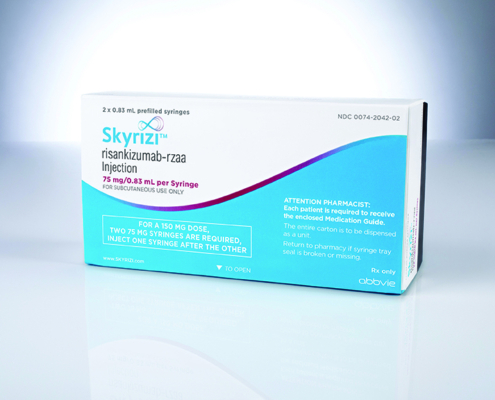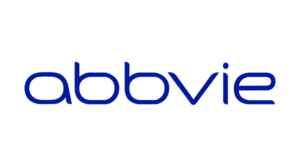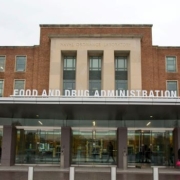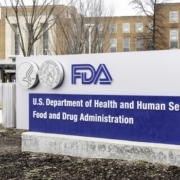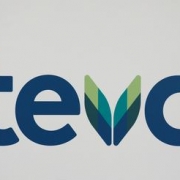AbbVie 2022: Still immune
AbbVie may have doubled in size since the Allergan acquisition, but nearly half the company’s revenue, and a large chunk of its potential future growth, are still coming from a familiar place.
By Joshua Slatko • [email protected]
1 North Waukegan Road
North Chicago, IL 60064-6400
847-932-7900 • abbvie.com
| Financial Performance | ||||
| 2021 | 2020 | 1H 2022 | 1H 2021 | |
| Revenue | $56,197 | $45,804 | $28,121 | $26,969 |
| Net income | $11,549 | $4,622 | $5,421 | $4,324 |
| Diluted EPS | $6.45 | $2.72 | $3.03 | $2.41 |
| R&D expense | $7,084 | $6,557 | $3,106 | $3,434 |
| All figures are in millions of dollars, except EPS. | ||||
Best-selling products
All sales are in millions of dollars.
* – Allergan product revenue after acquisition closing date of May 8, 2020.
2021 sales
- Humira $20,694
- Imbruvica $5,408
- Skyrizi $2,939
- Botox Therapeutic $2,451
- Botox Cosmetic $2,232
- Venclexta $1,820
- Vraylar $1,728
- Mavyret $1,710
- Rinvoq $1,651
- Juvederm Collection $1,535
- Restasis $1,290
- Creon $1,191
- Linzess $1,038
- Lupron $783
- Synthroid $767
- Lumigan $579
- Ubrelvy $552
- Alphagan $529
- Duodopa $511
1H 2022 sales
- Humira $10,099
- Imbruvica $2,318
- Skyrizi $2,192
- Botox Cosmetic $1,336
- Botox Therapeutic $1,292
- Rinvoq $1,057
- Venclexta $978
- Vraylar $919
- Mavyret $778
- Juvederm Collection $754
- Creon $605
- Linzess $495
- Restasis $414
- Ubrelvy $323
- Lumigan $270
Outcomes Creativity Index Score: 13
- Manny Awards — N/A
- Cannes Lions — N/A
- Clio Health — N/A
- Creative Floor Awards — 13
- London International Awards – N/A
- MM+M Awards — N/A
- One Show — N/A
Even after the vast Allergan acquisition shook up the company’s product portfolio two years ago, AbbVie still looks a lot like an immunology company. Humira remains, well, Humira, a $20 billion gorilla in the room which is still the world’s best-selling pharmaceutical that is not a COVID vaccine. And the two fastest-growing brands in AbbVie’s stable are, you guessed it, immunology products – Skyrizi (nearly doubled sales in 2021) and Rinvoq (more than doubled sales in 2021), both of which have enjoyed multiple new approvals from FDA since the turn of 2022. Humira, Skyrizi, and Rinvoq together accounted for nearly half of AbbVie’s top-line revenue in 2021 and the first half of 2022; and, given the rapid growth of the latter two, this state of affairs doesn’t look likely to change any time soon.
“We delivered another strong quarter with substantial progress for our new products and indications,” said AbbVie CEO Richard Gonzalez in the Q2 2022 earnings announcement. “Importantly, Skyrizi and Rinvoq continued their impressive ramps and are on pace to deliver approximately $7.5 billion in combined annual sales, underscoring their significant potential. The momentum of our business, combined with advances across our pipeline continue to support AbbVie’s promising long-term outlook.”
In its first full year with legacy Allergan sales, AbbVie’s top-line revenue in 2021 was $56.2 billion, a 22.7 percent improvement over the previous year. Net income more than doubled, from $4.62 billion to $11.55 billion, and earnings per share rose by $3.73 to $6.45. In first-half 2022, with the Allergan transaction off the lag side of the books, AbbVie’s top-line rose another 4.3 percent to $28.12 billion, with net income up 25.4 percent to $5.42 billion and EPS up 62 cents to $3.03.
Partnerships and acquisitions
In March, AbbVie completed the acquisition of Syndesi Therapeutics SA, which executives say will help to expand the company’s neuroscience portfolio. This acquisition gives AbbVie access to Syndesi’s portfolio of novel modulators of the synaptic vesicle protein 2A (SV2A), including its lead molecule SDI-118. The mechanism is currently being evaluated for the potential treatment of cognitive impairment and other symptoms associated with a range of neuropsychiatric and neurodegenerative disorders, such as Alzheimer’s disease and major depressive disorder. Under the terms of the agreement, AbbVie paid Syndesi shareholders a $130 million upfront payment with the potential for Syndesi shareholders to receive additional contingent payments of up to $870 million based on the achievement of certain predetermined milestones.
Also in March, AbbVie and Gedeon Richter Plc. announced a new joint development and license agreement to research, develop, and commercialize novel dopamine receptor modulators for the potential treatment of neuropsychiatric diseases. The collaboration is based on the results of preclinical research carried out by Richter and includes several new chemical entities selected for development. AbbVie and Richter have collaborated for 15 years on central nervous system (CNS) projects, including globally launched products such as cariprazine (marketed as Vraylar/Reagila).
Under the terms of the agreement, the collaboration includes both preclinical and clinical R&D activities with shared financing by the parties. Richter received an upfront cash payment, along with potential future development, regulatory and commercialization milestones. In addition, Richter may also receive sales-based royalties. AbbVie will have worldwide commercialization rights except for traditional markets of Richter, such as geographic Europe, Russia, other CIS countries, and Vietnam.
Also in March, AbbVie and Scripps Research, an independent, non-profit biomedical research and drug discovery institute, announced a global collaboration to develop potential novel, direct-acting antiviral treatments for COVID-19.
In May, AbbVie and Cugene Inc., a clinical-stage biotech company focused on developing next-generation precision immunology and oncology medicines to treat autoimmune disease and cancer, announced an exclusive worldwide license option agreement for CUG252, a potential best-in-class Treg-selective IL-2 mutein, as well as other novel IL-2 muteins, for the potential treatment of autoimmune and inflammatory diseases. Selective IL-2 muteins have the potential to represent a major advancement in the standard of care for patients with autoimmune and inflammatory diseases. Cugene’s lead candidate, CUG252, is an engineered IL-2 mutein designed to selectively activate and expand immune-suppressive Treg cells while reducing undesired IL-2 activity on other IL-2 receptor expressing cells for the treatment of autoimmune diseases. CUG252 is currently in a Phase I study in healthy volunteers.
Under the terms of the agreement, Cugene received an upfront payment of $48.5 million, and will also be eligible to receive development and regulatory milestones and a license option exercise payment if AbbVie exercises the option. In addition, Cugene may also receive commercialization and sales-based milestones and tiered royalties. AbbVie will receive an option to obtain an exclusive license for certain IL-2 muteins, including CUG252. During the option period, Cugene will conduct a Phase Ib study in patients with autoimmune/inflammatory disease. Upon exercise of the option, AbbVie will conduct all future clinical development, manufacturing and commercialization activities for CUG252.
AbbVie and iSTAR Medical SA in July announced a strategic deal to further develop and commercialize iSTAR’s MINIject device, a minimally invasive glaucoma surgical (MIGS) device for patients with glaucoma. This complementary alliance, leaders say, will support iSTAR Medical’s development and commercial efforts for MINIject, as well as provide an opportunity to expand AbbVie’s eye care business, building on its glaucoma portfolio, which includes drops, sustained release implants, and stent offerings.
Under the terms of the agreement, iSTAR Medical received a $60 million non-dilutive upfront payment and will continue to develop and commercialize MINIject until completion of the STAR-V clinical study. AbbVie will hold the exclusive right to acquire iSTAR Medical and lead subsequent global development and commercialization of the MINIject device. If AbbVie exercises the right to acquire iSTAR, the stockholders of iSTAR Medical would also be eligible to receive additional contingent payments of up to $475 million in a closing payment and upon achievement of certain predetermined milestones.
Product performance
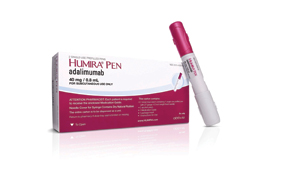
It may not be the world’s best-selling pharmaceutical any more, but Humira still generated more than $20 billion in sales for AbbVie in 2021 and looks likely to do so again in 2022.
It may not be the world’s leading pharmaceutical product any more – the Pfizer/BioNTech COVID vaccine ended that run – but the autoimmune drug Humira still generated $20.69 billion in sales for AbbVie in 2021, an improvement of 4.3 percent compared with 2020. According to company leaders, this was primarily driven by market growth across therapeutic categories, partially offset by direct biosimilar competition in certain international markets. In the United States, Humira sales increased 8 percent in 2021 driven by market growth across all indications. This increase was partially offset by slightly lower market share following corresponding market share gains of AbbVie stable-mates Skyrizi and Rinvoq. Internationally, Humira revenue decreased 13 percent in 2021 primarily driven by direct biosimilar competition in certain international markets. In the first half of 2022, Humira sales edged up another 1.7 percent to $10.1 billion.
The oncologic Imbruvica generated $5.41 billion in sales for AbbVie in 2021, up 1.8 percent from 2020. AbbVie executives say this was as a result of modest favorable pricing in the United States and increased collaboration revenue, partially offset by lower new patient starts due to the COVID-19 pandemic and share loss in the United States. In the first half of 2022, Imbruvica sales declined by 12.5 percent to $2.32 billion, as a result of decreased market demand and lower new patient starts in the United States.
In August, FDA approved the use of Imbruvica for the treatment of pediatric patients one year and older with chronic graft versus host disease (cGVHD) after failure of one or more lines of systemic therapy. The approval was AbbVie’s first pediatric indication for Imbruvica, marking the 12th FDA approval for Imbruvica and the first Bruton’s tyrosine kinase inhibitor (BTKi) treatment approved for a pediatric patient population. Imbruvica is now the first approved treatment option for children under 12 years of age suffering from cGVHD. The approval was primarily based on positive results from the iMAGINE Phase I/II clinical trial. The iMAGINE study demonstrated an Overall Response Rate through week 25 of 60 percent in patients median age 13 years (range, 1-19 years) with relapsed/refractory (R/R) moderate to severe cGVHD.5 The median duration of response was 5.3 months.
Sales of the autoimmune drug Skyrizi nearly doubled in 2021, from $1.59 billion to $2.94 billion. According to company leaders, this was primarily driven by continued strong volume and market share uptake since launch in 2019 as a treatment for plaque psoriasis as well as market growth over the prior year. In the first half of 2022, Skyrizi sales were up another 75.6 percent to $2.19 billion.
In January, FDA approved Skyrizi for the treatment of adults with active psoriatic arthritis. The FDA approval was supported by data from two pivotal studies, KEEPsAKE-1 and KEEPsAKE-2, which evaluated the efficacy and safety of Skyrizi in adults with active PsA, including those who had responded inadequately or were intolerant to biologic therapy and/or non-biologic disease-modifying antirheumatic drugs (DMARDs). Across the two Phase III studies, Skyrizi met the primary endpoint of ACR20 response at week 24 compared to placebo and demonstrated significant improvements across several other manifestations of PsA, including swollen, tender, and painful joints.
In June, FDA approved Skyrizi as the first and only specific interleukin-23 (IL-23) inhibitor for the treatment of adults with moderately to severely active Crohn’s disease (CD). In two induction and one maintenance clinical trials, Skyrizi demonstrated significant improvements in endoscopic response (defined as a decrease of greater than 50 percent from the baseline Simple Endoscopic Score in CD [SES-CD] or for patients with isolated ileal disease and SES-CD of 4, at least a 2-point reduction from baseline) and clinical remission (defined as a Crohn’s Disease Activity Index [CDAI] of less than 150), compared to placebo, as both an induction and maintenance therapy.
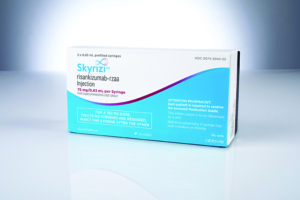
Sales of Skyrizi nearly doubled in 2021 to $2.94 billion; the autoimmune product has earned new approvals from FDA in psoriatic arthritis and Crohn’s during 2022.
The co-primary endpoints of the clinical trials were endoscopic response and clinical remission. In the 12-week induction studies, ADVANCE and MOTIVATE, a significantly greater proportion of patients treated with Skyrizi achieved endoscopic response and clinical remission compared to placebo. As early as week 4, clinical response (defined as a 100-point reduction in CDAI) and clinical remission were achieved in a significantly greater proportion of patients receiving Skyrizi as compared to placebo. In the 52-week maintenance trial, FORTIFY, a significantly greater proportion of patients achieved the co-primary endpoints of endoscopic response and clinical remission as compared with the placebo group (risankizumab induction responders) after one year.
Both sides of AbbVie’s Botox portfolio, the Cosmetic and the Therapeutic, enjoyed impressive growth in 2021, with Cosmetic sales more than doubling from $1.11 billion to $2.23 billion and Therapeutic up 76.7 percent to $2.45 billion. According to AbbVie leaders, this was due to increased brand investment and strong recovery from the COVID-19 pandemic. Sales were also favorably impacted by a full period of Allergan results in 2021 compared to the prior year. In the first half of 2022, Botox Cosmetic sales rose another 25.9 percent to $1.34 billion and Botox Therapeutic sales were up 13.8 percent to $1.29 billion.
The leukemia/lymphoma treatment Venclexta enjoyed a sales bounce of 36.1 percent in 2021, to $1.82 billion. According to company leaders, this was primarily due to continued expansion of Venclexta for the treatment of patients with first-line CLL, relapsed/refractory CLL, and first-line AML. In the first half of 2022, Venclexta sales were up another 16.4 percent to $978 billion.
In June, AbbVie announced five-year follow-up results from the Phase III CLL14 trial, finding that more than 60 percent of patients with previously untreated chronic lymphocytic leukemia (CLL) who had received one-year fixed-duration combination treatment of Venclyxto/Venclexta plus obinutuzumab (Gazyva) continued to show longer progression-free survival (PFS) and higher rates of undetectable minimal residual disease (MRD) after four years off treatment.
Data shows that after more than five years of median follow-up (65.4 months), PFS remained significantly superior among patients treated with the Venclyxto/Venclexta and obinutuzumab combination compared to the chlorambucil and obinutuzumab chemotherapy regimen (n=432; median NR versus 36.4 months). The therapies were administered for a fixed-duration of 12 months for Venclyxto/Venclexta in combination with six cycles of obinutuzumab. At five years after randomization, the estimated PFS rate after one-year fixed-duration treatment was 62.6 percent for the Venclyxto/Venclexta-based combination compared to 27.0 percent for the chlorambucil combination. The improvement in PFS was maintained across all risk groups, including patients with TP53 mutation/deletion and unmutated IGHV status.
Vraylar, indicated for the treatment of schizophrenia, bipolar I disorder, and bipolar depression, generated $1.73 billion in sales for AbbVie in 2021, nearly double its $951 million from the year before. According to AbbVie executives, this was due to higher market share and market growth. Sales were also favorably impacted by a full period of Allergan results in 2021 compared to the prior year. In the first half of 2022, sales of Vraylar rose another 18.1 percent to $919 million.
In February, AbbVie submitted a supplemental New Drug Application for Vraylar to FDA for the adjunctive treatment of major depressive disorder (MDD) in patients who are receiving ongoing antidepressant therapy. Supporting this submission, a Phase III study 3111-301-001 showed a clinically and statistically significant change from baseline to week six in the Montgomery-Åsberg Depression Rating Scale (MADRS) total score for patients treated with Vraylar at 1.5 mg/day compared with placebo. A second registration-enabling study, RGH-MD-75, showed a clinically and statistically significant change from baseline to week eight in the MADRS total score for patients treated with Vraylar at 2-4.5 mg/day compared with placebo.
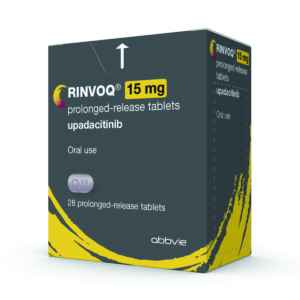
Rinvoq sales more than doubled to $1.65 billion in 2021; the drug earned new approvals in atopic dermatitis, ulcerative colitis, and ankylosing spondylitis from FDA in 2022.
The autoimmune product Rinvoq more than doubled its sales in 2021, jumping from $731 million to $1.65 billion. AbbVie leaders said this was primarily driven by continued strong volume and market share uptake since launch in 2019 for the treatment of moderate to severe rheumatoid arthritis as well as market growth over the prior year. Sales were also favorably impacted by recent regulatory approvals and expansion of Rinvoq for the treatment of psoriatic arthritis, atopic dermatitis and ankylosing spondylitis in certain international markets. First-half 2022 Rinvoq sales rose another 55.2 percent to $1.06 billion.
In January, FDA approved Rinvoq for the treatment of moderate-to-severe atopic dermatitis in adults and children 12 years of age and older whose disease did not respond to previous treatment and is not well controlled with other pills or injections, including biologic medicines, or when use of other pills or injections is not recommended. The approval was supported by efficacy and safety data from one of the largest registrational Phase III programs for atopic dermatitis with more than 2,500 patients evaluated across three studies. About 52 percent of the patients had prior exposure to systemic atopic dermatitis treatment. These studies evaluated the efficacy and safety of Rinvoq monotherapy (Measure Up 1 and 2) and with topical corticosteroids (AD Up), compared to placebo, in adults and children 12 years of age and older with moderate to severe atopic dermatitis. Across the three atopic dermatitis pivotal studies, Rinvoq (15 mg and 30 mg, once daily) monotherapy and with topical corticosteroids met all primary and secondary endpoints at week 16, with some patients achieving higher levels of skin clearance (EASI 90 and 100).
In February, AbbVie announced positive top-line results from U-EXCEL, a Phase III induction study, showing Rinvoq (45 mg once daily) achieved both primary endpoints of clinical remission and endoscopic response at week 12. A significantly greater proportion of patients treated with a 12-week induction regimen of Rinvoq achieved clinical remission per CDAI at week 12 compared to placebo (49 percent versus 29 percent). Similar results were observed with clinical remission per SF/AP (51 percent in Rinvoq-treated patients versus 22 percent in placebo-treated patients). At week 12, a significantly greater proportion of patients treated with upadacitinib 45 mg achieved endoscopic response compared to the placebo group (46 percent versus 13 percent).
In March, FDA approved Rinvoq for the treatment of adults with moderately to severely active ulcerative colitis (UC) who have had an inadequate response or intolerance to one or more tumor necrosis factor (TNF) blockers. This FDA approval was the first indication for Rinvoq in gastroenterology and was supported by efficacy and safety data from three Phase III randomized, double-blind, placebo-controlled clinical studies.
The two induction studies (U-ACHIEVE and U-ACCOMPLISH) utilized Rinvoq 45 mg once daily for 8 weeks, and then 15 mg or 30 mg once daily for the maintenance study (U-ACHIEVE maintenance) through 52 weeks. Across all clinical trials, significantly more patients treated with Rinvoq achieved clinical remission at weeks 8 and 52, the primary endpoint based on the mMS: stool frequency subscore (SFS) ≤ 1 and not greater than Baseline, rectal bleeding subscore (RBS) = 0, endoscopy subscore (ES) of ≤ 1 without friability, compared to placebo. In addition, the studies met all ranked secondary endpoints, including endoscopic improvement and histologic-endoscopic mucosal improvement (HEMI), as well as corticosteroid-free clinical remission in the maintenance study.
In April, FDA approved Rinvoq for the treatment of adults with active ankylosing spondylitis (AS) who have had an inadequate response or intolerance to one or more tumor necrosis factor (TNF) blockers. The approval was supported by efficacy and safety data from the Phase III SELECT-AXIS 2 clinical trial (Study 1) evaluating Rinvoq in patients who had an inadequate response or intolerance to one or two biologic disease-modifying anti-rheumatic drugs (bDMARDs) and the Phase II/III SELECT-AXIS 1 clinical trial evaluating Rinvoq in patients who were naïve to bDMARDs and had an inadequate response or intolerance to at least two nonsteroidal anti-inflammatory drugs (NSAIDs). In both the SELECT-AXIS 1 and SELECT-AXIS 2 clinical trials, a significantly greater proportion of patients receiving Rinvoq 15 mg achieved an ASAS40 response, the primary endpoint, (51 percent and 44.5 percent, respectively) compared to those receiving placebo (26 percent and 18.2 percent, respectively) at week 14. Clinical responses were observed as early as week four in SELECT-AXIS 2 for ASAS40.
In May, AbbVie announced positive topline results from U-ENDURE, its Phase III maintenance study evaluating Rinvoq in adult patients with moderate-to-severe Crohn’s disease who had an inadequate response or were intolerant to a conventional or biologic therapy. The results showed that more patients treated with either dose of Rinvoq (15 mg or 30 mg once daily) achieved the co-primary endpoints of endoscopic response and clinical remission, as well as the secondary endpoint of endoscopic remission, at one year (week 52) compared to placebo. Results from the U-ENDURE maintenance study, in addition to results from the U-EXCEED and U-EXCEL induction studies, will be included in future regulatory submissions.
A significantly higher proportion of patients who received Rinvoq 15 mg or 30 mg achieved clinical remission per the CDAI at week 52: 37 and 48 percent, respectively, versus 15 percent in the placebo group. Results also showed that 36 and 46 percent of patients who received Rinvoq 15 mg and 30 mg, respectively, achieved clinical remission at week 52 per SF/AP compared to 14 percent in the placebo group. At week 52, 28 and 40 percent of patients who received Rinvoq 15 mg and 30 mg, respectively, achieved endoscopic response compared to 7 percent of patients who received placebo. In addition, 19 and 29 percent of patients who received Rinvoq 15 mg and 30 mg achieved endoscopic remission, respectively, compared to 5 percent of patients in the placebo group. A significantly higher proportion of patients who received Rinvoq 15 mg or 30 mg achieved corticosteroid-free clinical remission per CDAI and per SF/AP compared to placebo at week 52 among patients taking corticosteroids at baseline.
In July, the European Commission approved Rinvoq for the treatment of active non-radiographic axial spondyloarthritis (nr-axSpA) in adult patients with objective signs of inflammation, as indicated by elevated C-reactive protein (CRP) and/or magnetic resonance imaging (MRI), who have responded inadequately to nonsteroidal anti-inflammatory drugs (NSAIDs). The approval was based on results from the Phase III SELECT-AXIS 2 nr-axSpA clinical trial. Study results showed a significantly greater proportion of patients receiving Rinvoq achieved an Assessment of SpondyloArthritis international Society 40 percent (ASAS40) response at week 14 (45 percent versus 23 percent) compared to placebo. Statistical significance was also achieved in 12 of the 14 multiplicity-controlled secondary endpoints compared to placebo at week 14.
Also in July, the European Commission approved Rinvoq for the treatment of adult patients with moderately to severely active ulcerative colitis who have had an inadequate response, lost response or were intolerant to either conventional therapy or a biologic agent. The approval was supported by data from two induction studies, U-ACHIEVE induction and U-ACCOMPLISH, and one maintenance study, U-ACHIEVE maintenance. Statistical significance was achieved for the primary endpoint and all secondary endpoints with Rinvoq 45 mg in the two induction studies and both Rinvoq 15 mg and 30 mg in the maintenance study.
Sales of the migraine treatment Ubrelvy more than quadrupled in 2021, from $125 million to $552 million. Company leaders said this was primarily due to increased volume and market share uptake since launch in 2020. In first-half 2022, Ubrelvy sales rose another 56 percent to $323 million.
In the pipeline
In January, FDA granted Breakthrough Therapy Designation to investigational telisotuzumab vedotin (Teliso-V) for the treatment of patients with advanced/metastatic epidermal growth factor receptor (EGFR) wild type, nonsquamous non-small cell lung cancer (NSCLC) with high levels of c-Met overexpression whose disease has progressed on or after platinum-based therapy.
This BTD designation was supported by data from LUMINOSITY (Study M14-239), an ongoing Phase II study designed to identify the target NSCLC populations that overexpress c-Met best suited for Teliso-V monotherapy in the second line or third line setting, and then to expand the groups to further evaluate efficacy in the selected populations. The primary endpoint is overall response rate (ORR) per central review in patients with ≥ 12 weeks follow-up. Among patients with EGFR WT nonsquamous NSCLC, ORR was 53.8 percent in the c-Met high group and 25.0 percent in the c-Met intermediate group at a previously reported interim analysis. Teliso-V is also being evaluated in combination with osimertinib in the ongoing Phase I study M14-237 in patients with previously treated c-Met overexpressing NSCLC. In addition, it will be further evaluated as monotherapy in patients with previously treated c-Met overexpressing NSCLC in the randomized Phase III study TeliMET NSCLC-01 (Study M18-868).
In April, the AbbVie company Allergan announced that the Phase III VIRGO trial evaluating the safety and efficacy of investigational twice-daily administration of Vuity 1.25% in adults with presbyopia met its primary efficacy endpoint, improving near vision without compromising distance vision at Hour 9 (3 hours after the second drop) on Day 14. Approved by FDA in October 2021 for once-daily use, Vuity is the first and only eye drop to treat age-related blurry near vision in adults.
In the VIRGO Phase III clinical trial, a total of 230 participants aged 40 to 55 years old with presbyopia were randomized in a one-to-one ratio of vehicle (placebo) to Vuity, receiving two drops in each eye per day for 14 days, with the second drop at Hour 6 (6 hours after the first drop). The study met its primary endpoint, demonstrating a statistically significant proportion of participants treated with Vuity twice daily gained three lines (the ability to read three additional lines on a near vision chart) or more in mesopic (low light), high contrast, binocular Distance Corrected Near Visual Acuity (DCNVA) with no more than 5-letter loss in low light Corrected Distance Visual Acuity (CDVA) at Day 14, Hour 9 (3 hours after the second drop) compared to the vehicle (placebo).
In May, AbbVie submitted a New Drug Application to FDA for ABBV-951 (foscarbidopa/foslevodopa) for the treatment of motor fluctuations in patients with advanced Parkinson’s disease. The submission was based on results from a Phase III, head-to-head, randomized and controlled clinical trial demonstrating statistically significant improvement in “on” time without troublesome dyskinesia compared to oral immediate-release carbidopa/levodopa (CD/LD).
In June, AbbVie announced primary results from the large B-cell lymphoma (LBCL) expansion cohort in the EPCORE NHL-1 phase II clinical trial evaluating epcoritamab. In this study, epcoritamab demonstrated efficacy with durable responses in patients who had previously received at least two prior lines of anti-lymphoma therapy including chimeric antigen receptor (CAR) T-cell therapy.
The study cohort, which included 157 relapsed/refractory LBCL patients, previously treated with a median of three lines of prior therapy, demonstrated an overall response rate of 63 percent and a complete response rate of 39 percent. Baseline characteristics included 61 percent of patients who were refractory to primary treatment, 20 percent who had prior autologous stem cell transplantation (ASCT), and 39 percent who were treated with CAR T-cell therapy (75 percent of those refractory to CAR T). Patients enrolled in the study who were naïve to CAR T-cell therapy achieved a 69 percent ORR and a 42 percent CR and patients who received prior CAR T-cell therapy achieved a 54 percent ORR and a 34 percent CR. After a median follow up of 10.7 months, the median duration of response (mDOR) was estimated to be 12 months, while the mDOR among patients achieving a CR was not reached, with 89 percent still in CR at nine months.
Also in June, AbbVie announced new data from Cohort 3 of its Phase II REFINE study of investigational navitoclax in combination with ruxolitinib in JAK inhibitor naïve patients with myelofibrosis (MF), a rare and difficult-to-treat blood cancer. These preliminary findings show spleen volume and symptomatic improvement in this cohort. The primary endpoint was spleen volume reduction of ≥35 percent (SVR35) from baseline at week 24.2 Key secondary endpoints include ≥50 percent reduction in total symptom score (TSS50) at week 24, anemia response and BMF reduction.
In the results, SVR35 was achieved by 63 percent of evaluable patients at week 24 (20/32) and by 78 percent at any time on treatment (25/32). At week 24, 41 percent (11/27) of evaluable patients with measurable baseline symptoms reached TSS50; 67 percent of patients (18/27) met this endpoint at any time during the study. In this cohort, 35 percent of evaluable patients, with available fibrosis grade at baseline and during the study, (9/26) achieved reduction in BMF by ≥1 grade at any time during the study with three patients experiencing ≥2 grade reductions in BMF. Additionally, 40 percent of patients evaluable for anemia response (6/15) experienced improvement in anemia, a common clinical feature of MF.
Also in June, AbbVie submitted a supplemental New Drug Application for Qulipta to FDA to support the preventive treatment of chronic migraine in adults. If approved, Qulipta would be the first gepant (oral calcitonin gene-related peptide [CGRP] receptor antagonist) approved for the broad indication of the preventive treatment of migraine, including episodic and chronic. The sNDA submission includes data from the pivotal Phase III PROGRESS trial in patients with chronic migraine, which supplements the existing data in episodic migraine.
The Phase III PROGRESS trial met its primary endpoint of statistically significant reduction from baseline in mean monthly migraine days compared to placebo across the 12-week treatment period in adults with chronic migraine. The trial also demonstrated that treatment with Qulipta 60 mg once daily (QD) and 30 mg daily (BID) resulted in statistically significant improvements in all six secondary endpoints. This includes a key secondary endpoint that measured the proportion of patients that achieved at least a 50 percent reduction in mean monthly migraine days across the 12-week treatment period.
In July, AbbVie submitted a marketing authorization application to the European Medicines Agency for Qulipta for the prophylaxis of migraine in adult patients who have at least four migraine days per month. The application was supported by the pivotal Phase III ADVANCE and PROGRESS studies evaluating the safety, efficacy, and tolerability of Qulipta in adult patients with episodic migraine and chronic migraine, respectively.
The Phase III multicenter, randomized, double-blind, placebo-controlled, parallel-group ADVANCE trial evaluated the efficacy, safety, and tolerability of once daily (QD) oral Qulipta for the prophylaxis of episodic migraine. The study met its primary endpoint of a statistically significant reduction in mean monthly migraine days across the 12-week treatment period compared to placebo. This was found across all active treatment arms of Qulipta – 10 mg, 30 mg, and 60 mg QD doses. The adult patients enrolled met the International Classification of Headache Disorders (ICHD) criteria for a diagnosis of migraine with or without aura. The study also found that a greater proportion of Qulipta-treated participants achieved at least a 50 percent reduction in mean monthly migraine days for all doses compared to placebo and met other key secondary endpoints.

